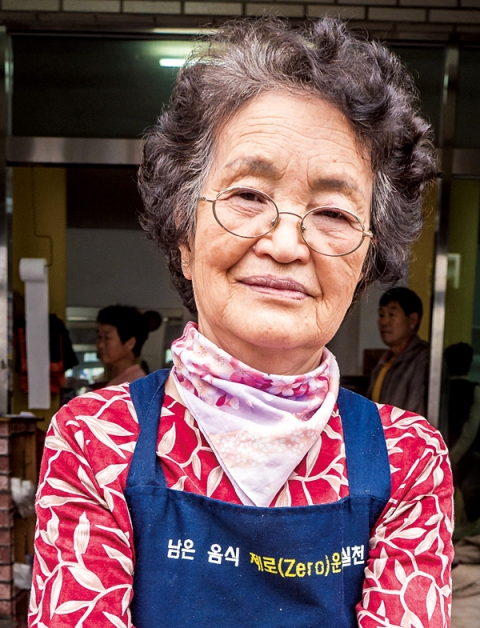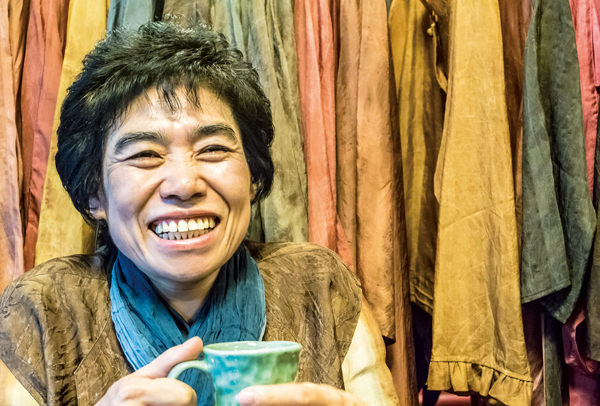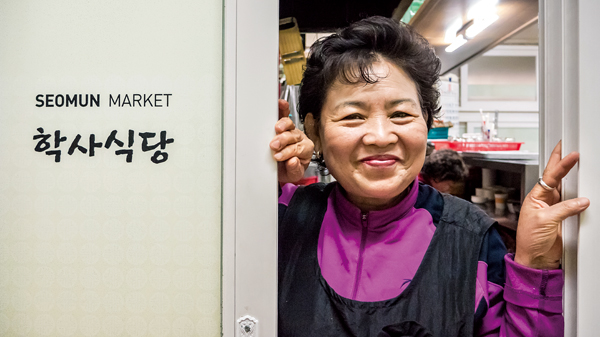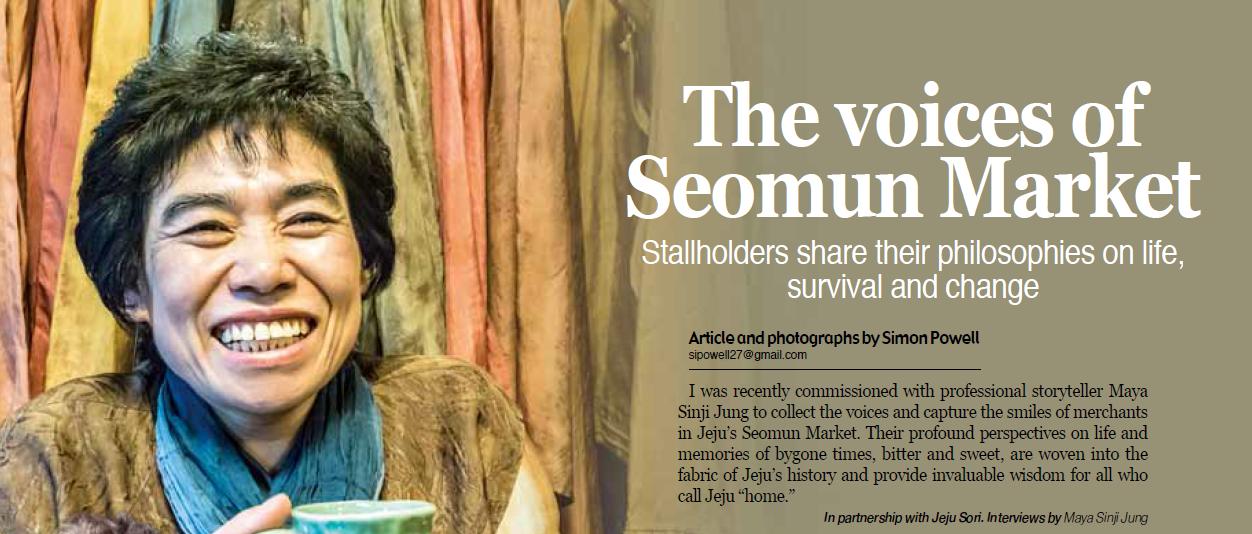|
[More of Powell’s images can be found at “Simon J Powell Photography”]
I was recently commissioned with professional storyteller Maya Sinji Jung to collect the voices and capture the smiles of merchants in Jeju’s Seomun Market. Their profound perspectives on life and memories of bygone times, bitter and sweet, are woven into the fabric of Jeju’s history and provide invaluable wisdom for all who call Jeju “home.”
[In partnership with Jeju Sori. Interviews by Maya Sinji Jung]
| |
 |
|
| ▲ Park Ok-soon of Seomun Gochu. Photo by Simon Powell |
Park Bok-soon - Seomun Gochu
Park Ok-soon was born in 1938. Forty-five years ago, when “everyone was poor”, she took a small bag of homemade chili powder to Seomun market to eke out a lifeline for her struggling family. She recalls how Jeju lacked the kimchi culture of the mainland in those days due to the warmer winter temperatures, which enabled a greater variety of crops to be harvested. Today kimchi is eaten globally and Seomun Chili is one of biggest producers of chili powder on the island. Ok-soon has five children and three generations of her family work for her business at the same spot where she sold her first chili almost half a century ago.
What do you think about the new, “fake” Chinese gochu, with added color?
“There is no real or fake gochu. What is fake is the human mind. Every gochu has a different personality, even if they grew on the same branch of the same tree, but how can one be real and the other fake? Can you say this is my real baby and that is my fake baby, even though you delivered them from the same belly? The problem is with the people who make the bad gochu. Those peoples’ minds are fake; their priority is making money, not good gochu.”
| |
 |
|
| ▲ Kim Soon-bok of Clover Hanbok. Photo by Simon Powell |
Kim Soon-bok - Clover Hanbok
As a child, Kim Soon-bok was disabled by polio and received little formal education. When her father passed away at a tragically young age, she was forced to sell fish at Seomun market with her mother. The coins she scraped together enabled her younger brother and sister to continue their schooling, at the expense of her own. Entirely self taught, Soon-bok began making hanbok in the market and her business soon flourished. She now conducts yearly fashion shows, attended by models and celebrities, displays her creations in Insadong boutiques and manages a shop on the same market lane she was first dragged to by her mother as a little girl.
How can you always be so positive, happy and smiling?
“I don’t focus on the detail. The goal is feeding your kids and going forward with your family. Whatever happens, just accept it. When you fall down, get up. Because you are a woman you can do everything. If you do your best today, you can die tomorrow without any regrets. Sometimes I appreciate god for having given me my disability, because it allows me to see the world from the bottom.”
| |
 |
|
| ▲ Kang Chi-sook of Five Grain Store. Photo by Simon Powell |
Kang Chi-sook - Five Grain Store
Unable to grow locally and expensive to import, rice was a precious commodity when Kang (79) started work in Seomun market 41 years ago. After her husband’s sudden passing, she successfully founded her own rice-selling business, enabling her to raise a family singlehandedly.
How do you manage to look so young?
“The countryside grandmas say I’m pretty because I haven’t worked hard in my life. [But the] market is like a jail without a fence. Rain comes, snow comes, holiday comes, you sell it or you don’t sell it...you still have to stay at the market and there’s no rest. My body is so old. I ache everywhere. But, every morning for the last 10 years I’ve been swimming before work. I can swim 600 meters without any rest!”
| |
 |
|
| ▲ Im Yeon-soo of Bachelor RPhoto by Simon Powell |
Im Yeon-soo - Bachelor Restaurant
Im moved to the island in the 1970s and was compelled to run a market restaurant by the persistent exhortations of her husband’s family. Forced to sleep in the restaurant, ravenous students woke the family each morning, pleading to be fed. Im persevered and, although the students are long gone – Jeju National University having relocated – the resolute Im and her restaurant remain.
What do you remember about the early days?
“In those days the students were really poor. They only ordered makgeolli, so they could eat the free side dish, and whenever I went to the toilet they would run to open the rice cooker. They stole my cutlery and gave me their hats, bags or cheap watches instead of paying. However, I got more back in love. It was like a family. Those college kids were barely younger than me but they called me mum, because a mother in Korea is the one who gives you rice.”
| |
 |
|
| ▲ Kim Cheong-hyang of Grandma’s Black Pudding |
Kim Cheong-hyang - Grandma’s Blood Sausage
Kim moved to Jeju from Japan in the 1940s and began cleaning in Seomun market at the age of 29. At 43, she established a sundae (blood sausage) business using butchers’ leftovers; she now wholesales to markets and restaurants island-wide. At 85, she continues to sleep in a cramped corner of the market and has turned off the Seomun lights every night for over half a century.
What did you tell your son when you handed him the business?
“Not every new thing is a good thing. If you follow in my footsteps you will be able to feed yourself. Don’t take other people’s things with your greed and don’t let other people take you for a fool. Keep what your mother has given you.”
|

























